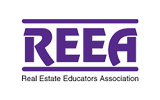Online Real Estate Appraisal School
We’re updating our Appraisal courses to better serve you! Our improved offerings will be back online shortly—thank you for your patience.
- Appraiser License Courses for CO, IA, GA, NJ, SD, TX, VA & WA
- Online, Affordable & Flexible Education Programs
- Instructor Support from Experienced, Practicing Appraisers
- FREE Trial Enrollment to Explore Our Online Courses
Select your state, then education to see what courses fit your needs!

The Leader in Real Estate Appraisal Education & Training
Are you interested in starting a new career as an appraiser? Our online real estate appraisal school provides you with the education you need to satisfy state education requirements for an appraiser license and pass the appraisal exam.
Our staff and instructors are here to help. We can guide and educate you through the process of getting your license and prepare you for the appraiser exam.
FREE Trial Enrollment
Most appraiser licensing courses are eligible for a 5-day free trial enrollment. Unlike other schools, we don't hide our courses until after you pay. Explore with no commitment and learn why our school is the best!

Why Choose VanEd for Appraisal Education?
The most successful people in appraisal choose VanEd for their appraiser education.
How to Get a Real Estate Appraisal License
3 Steps to Become a Licensed Real Estate Appraiser
Most states have a 3-tiered licensing system for real estate appraisers, each step of which requires education and documented training hours (Licensed Residential, Certified Residential, or Certified General). For your state's current licensing rules, you may want to check your state appraisal board's website for the details.
Generally, appraisers start with 75 hours of education (Basic Appraisal Principles, Basic Appraisal Procedures and the 15-hour National USPAP course) and then need to achieve 2,500 hours of experience and another 75 hours of coursework before they can take the initial Licensing exam. Completion of college-level education (a Bachelor's degree for example) is required at the higher levels of licensing.
Below is a step-by-step guide on how to become a real estate appraiser.
Real Estate Appraiser Salary & Job Description
Appraisal Career Information, Job Description, & Salary Potential
Are you interested in becoming a real estate appraiser and curious about your salary potential and your career opportunities? Below, we answer some of our most frequently asked questions regarding a career in appraisal including, "what are the opportunities for real estate appraisers?" and "how much is the average salary for an appraiser?".

What Is the Job of a Real Estate Appraiser?
Types of Employment for Appraisal Professionals
What Is the Salary for a Real Estate Appraiser?
Where Do I Get a Job After I Get a Real Estate Appraiser License?
Is It a Good Career?
What Students Say About Our Appraisal Courses
Popular Blogs
Approved and Regulated Online Real Estate Classes
Our real estate courses are approved and regulated by several organizations depending on the course topic, state, and/or national governing authorities. We strive to have all our courses approved at the highest levels, even when it is not required. This allows us to ensure the utmost quality of content and online course delivery for our school’s students.








